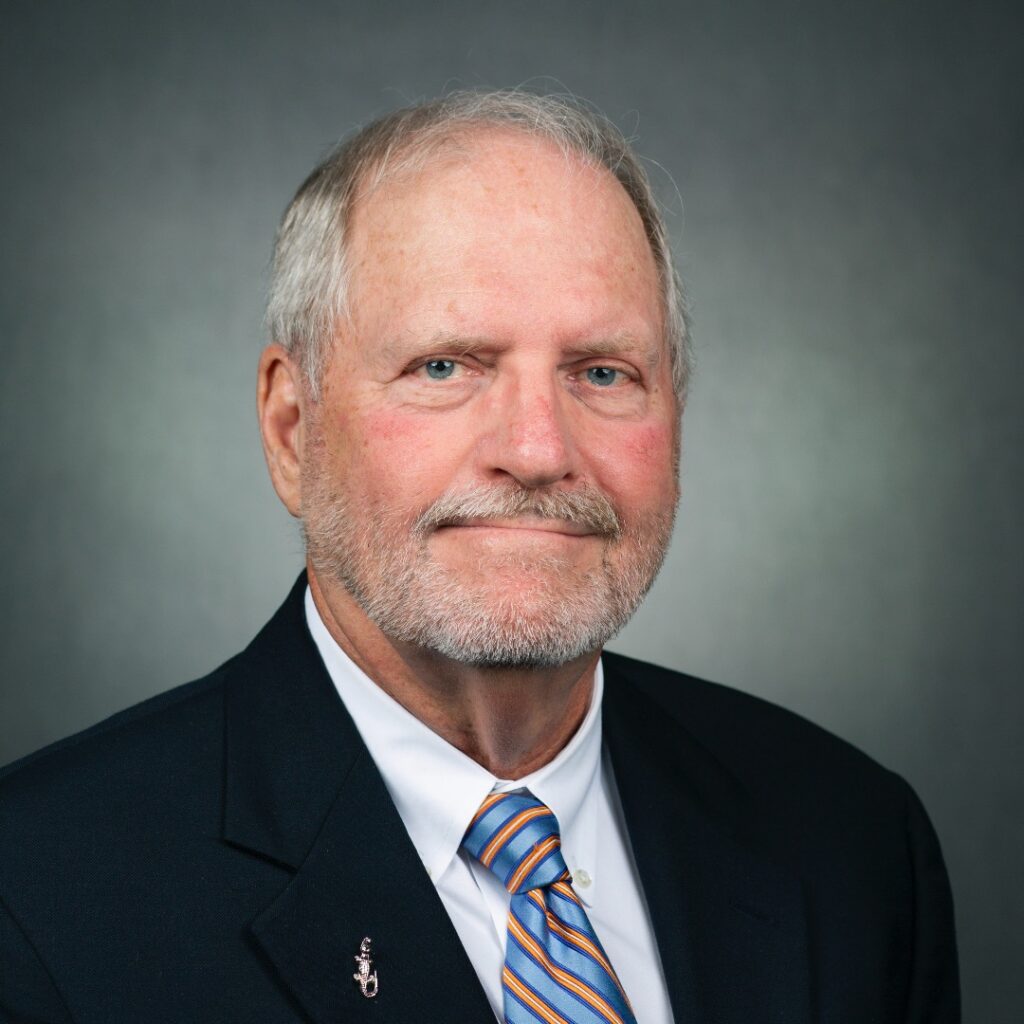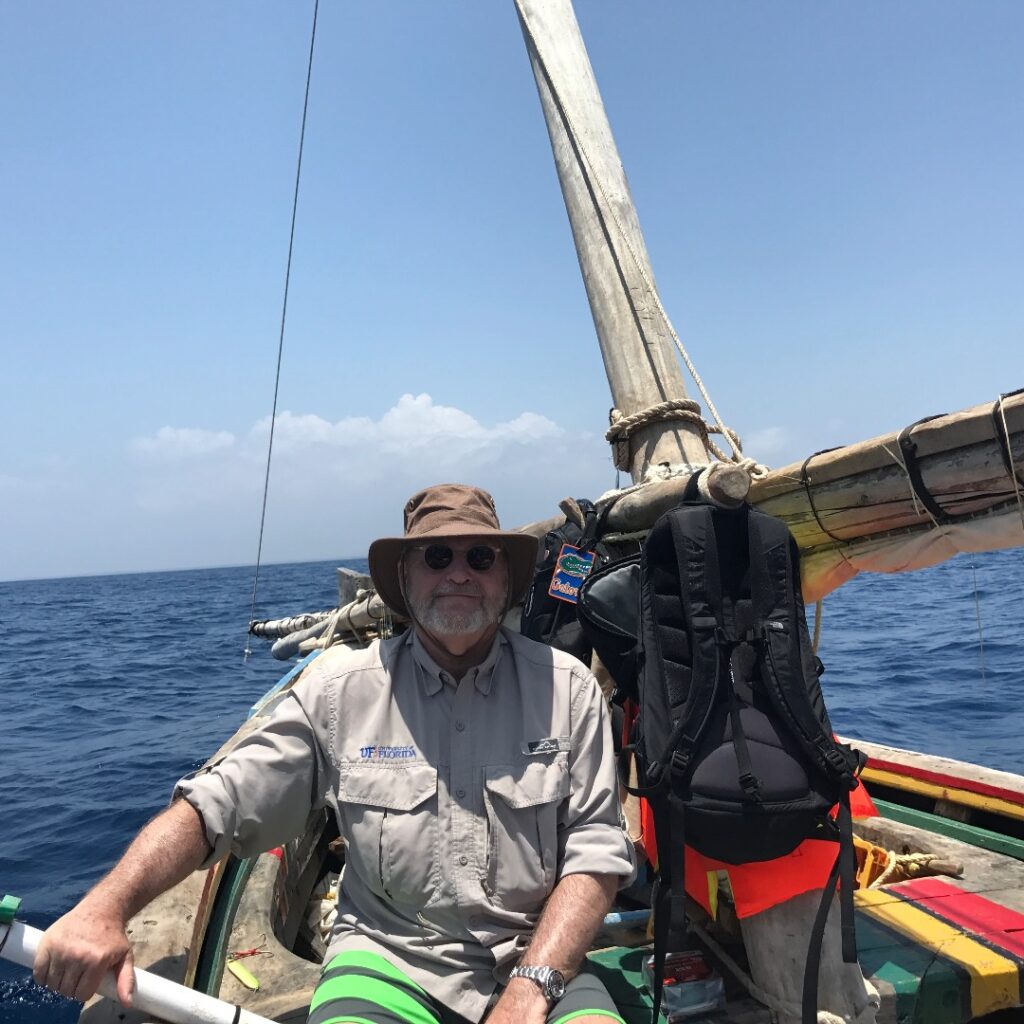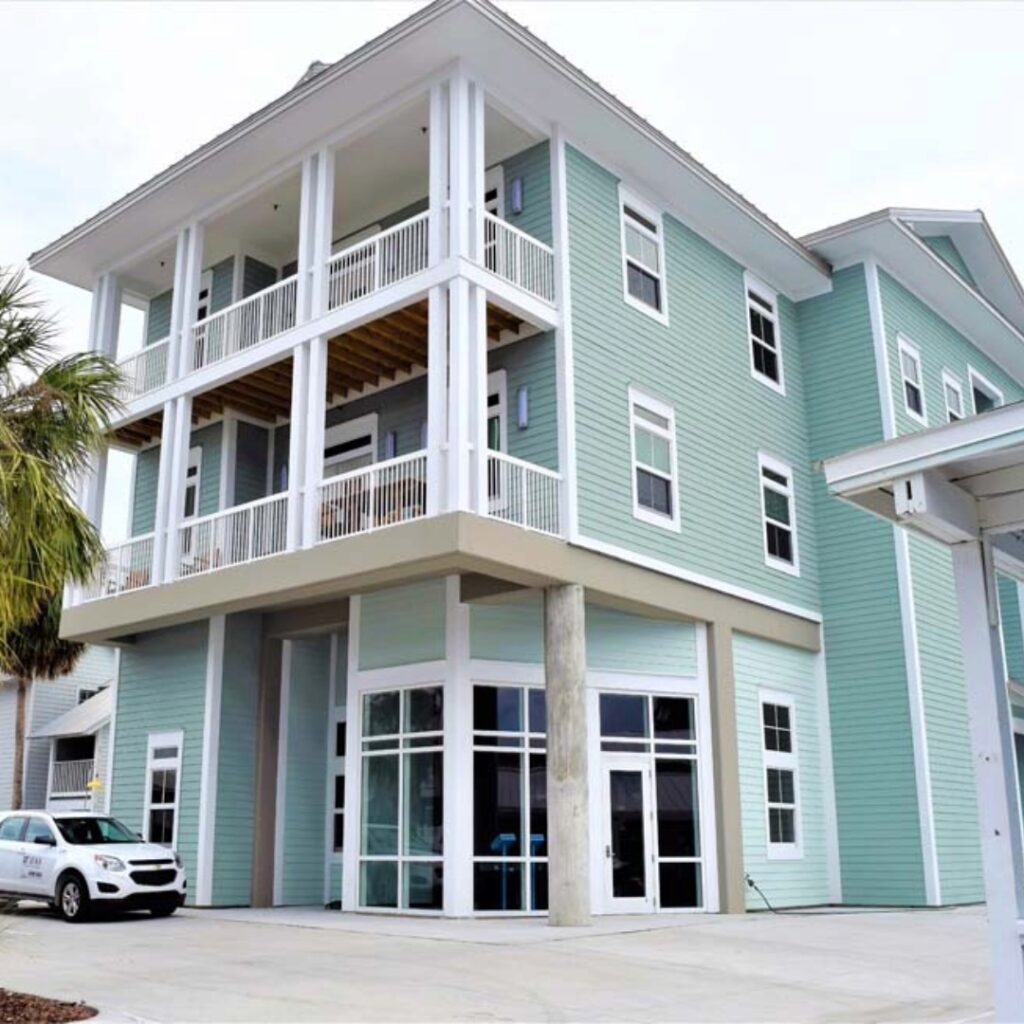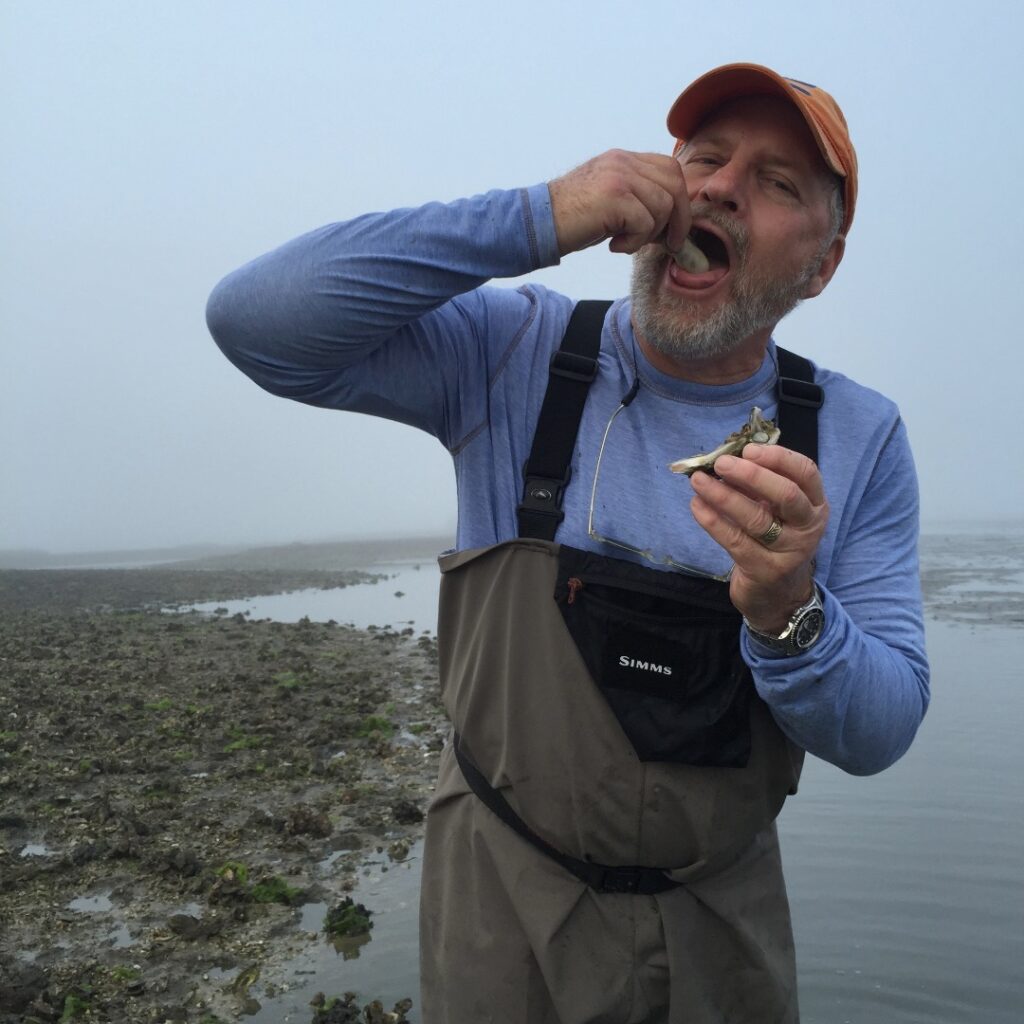
Jack Payne served as UF’s senior vice president for agriculture and natural resources from 2010-2020. Image courtesy of UF/IFAS.
Working in the Rocky Mountains, leading canoe field trips in the Pine Barrens, and learning Texan lingo with a local rancher defines the character of Jack Payne; he is a jack-of-all-trades.
For over a decade, Jack Payne dedicated his leadership to UF’s Institute of Food and Agricultural Sciences (UF/IFAS) as Senior Vice President for Agriculture and Natural Resources. In 2019, Payne bid farewell at the University of Florida and embarked on his retirement journey. Still, his devotion to protecting natural resources and enhancing environmental and scientific knowledge was far from over.
In June 2023, the U.S. Secretary of Commerce, Gina Raimondo, appointed Payne for a 4-year term to the National Sea Grant Advisory Board (NSGAB).
The National Sea Grant Advisory Board advises the National Oceanic and Atmospheric Administration (NOAA) and the National Sea Grant College Program on strategies to address the Nation’s highest priorities in managing and conserving ocean, coastal, and Great Lakes resources. Payne will accompany the rest of the Advisory Board in evaluating the performance of all Sea Grant programs in the United States every four years, while also providing reports to Congress on the state of the Sea Grant programs.

Payne sailing on a dhow in the Indian Ocean. Image courtesy of Jack Payne.
“Alongside Florida, we have many coastlines and communities to protect in the United States. As a National Sea Grant Advisory Board member, I look forward to supporting Sea Grant programs, providing working solutions, and equipping coastal communities for success,” says Payne.
Payne’s breadth of experiences is a testament to Sea Grant’s mission: enhancing the practical use and conservation of coastal, marine, and Great Lakes resources to create a sustainable economy and environment through research, extension, and education.
“Dr. Payne will bring his vast experience with the Land Grant university system to bear on NOAA’s marine and coastal programs, especially on the diversity of states and territories charged with making a difference in coastal communities and economies,” says Sherry Larkin, Director of Florida Sea Grant. “Dr. Payne’s experience means that he is well-qualified to advise on the challenges and opportunities for Sea Grant, and is uniquely well-suited to provide leadership at the national level.”
Under Payne’s leadership at UF IFAS, he tackled prominent issues at the intersections of the environment and economy, including the advancement of cutting-edge research on citrus greening, building a honey bee lab and beef-teaching unit, and perhaps the most notable contribution to the Florida Sea Grant program, the development of the UF/IFAS Nature Coast Biological Station (NCBS) in Cedar Key, Florida.
Dr. Payne will bring his vast experience with the Land Grant university system to bear on NOAA’s marine and coastal programs, especially on the diversity of states and territories charged with making a difference in coastal communities and economies.
Dr. Sherry Larkin

UF/IFAS Nature Coast Biological Station. Image courtesy of UF/IFAS.
The Nature Coast Biological Station works to deploy science-based practices to promote the sustainability and conversation of resources. As of today, the NCBS hosts two of Florida Sea Grant’s extension agents, Savanna Barry and Leslie Sturmer, who have fostered many programs and research to support Nature Coasts’ natural resources and working waterfront communities – including living shoreline implementation, molluscan aquaculture, horseshoe crab monitoring, seagrass restoration and much more!
“The establishment of the NCBS has allowed us to position agents where they can be most impactful, directly on the coast. UF/IFAS has a rich history of helping commercial fisheries and the successes in Cedar Key are the best example of what Sea Grant can accomplish,” says Larkin.
Payne’s approach to scientific and environmental education comes from years of trekking across various landscapes and ecosystems, interacting with diverse communities, and recognizing the importance of interdisciplinary research. His graduate and post-graduate career helped him foster meaningful connections with scientists, local communities, state and federal agencies, and industry stakeholders.
After completing his undergraduate studies and teaching K-12 science classes for five years in Camden, New Jersey, Payne pursued his graduate degree. He received his M.S. in Aquatic Ecology and his Ph.D. in Wildlife Ecology from Utah State University and graduated from the Institute for Educational Management at Harvard University.
During his graduate studies, he worked with the Corps of Engineers in Salt Lake Valley to study the impacts of running an aqueduct perpendicular to the streams that ran down the Rocky Mountains into the Colorado River.
“At the time, development was increasing around Salt Lake and the Bureau of Reclamation wanted to build a reservoir storage in the valley. We were working in the interest of developers while assessing how much water you can take out a mountain stream and still maintain the integrity of the ecosystem.”
After clocking in some hours on mountain time, Payne found himself further southwest, donning the cattleman attire as he worked alongside the ranchers in Texas to manage the integration of wildlife into cattle operations. During this time, he recognized the importance of effective outreach and education to drive sustainable industry decisions.
“Sometimes, there is a disconnect between scientists, environmentalists, and industry members. The effective dissemination of scientific knowledge can not be accomplished in one lecture, one presentation, or one visit. You have to build trust and good rapport with your audience; this makes the data and science much more compelling and impactful.”

Payne eating wild eastern oysters. Image courtesy of Jack Payne.
Before his position in Florida, Payne served as a Vice President at Iowa State University, and he was Vice President and Dean at Utah State University. Jack also has experience at two other land-grant institutions: Pennsylvania State University, where he served on the faculty of the School of Forest Resources, and, later, Texas A&M University, where he served as a faculty member in the Fisheries and Wildlife Department.
After leaving Texas A&M University, Payne had a long career with Ducks Unlimited (DU) as their National Director of Conservation. While at DU, his successes included the development of DU’s private lands program with agriculture, the development of a national conservation easement program, and the expansion of their Mexican program to Central and South America.
In the following weeks, Payne will travel to Guam to prepare for his appointment to the National Sea Grant Advisory Board.
“It is certain to say that Jack Payne will lend his expertise and professionalism. Not only will he inspire action, but he will be able to identify the next steps in complicated human-environmental systems that can lead toward sustainable improvements. He recognizes the contribution of all sciences – and all stakeholders – and how to incorporate all into decision-making.” says Larkin.